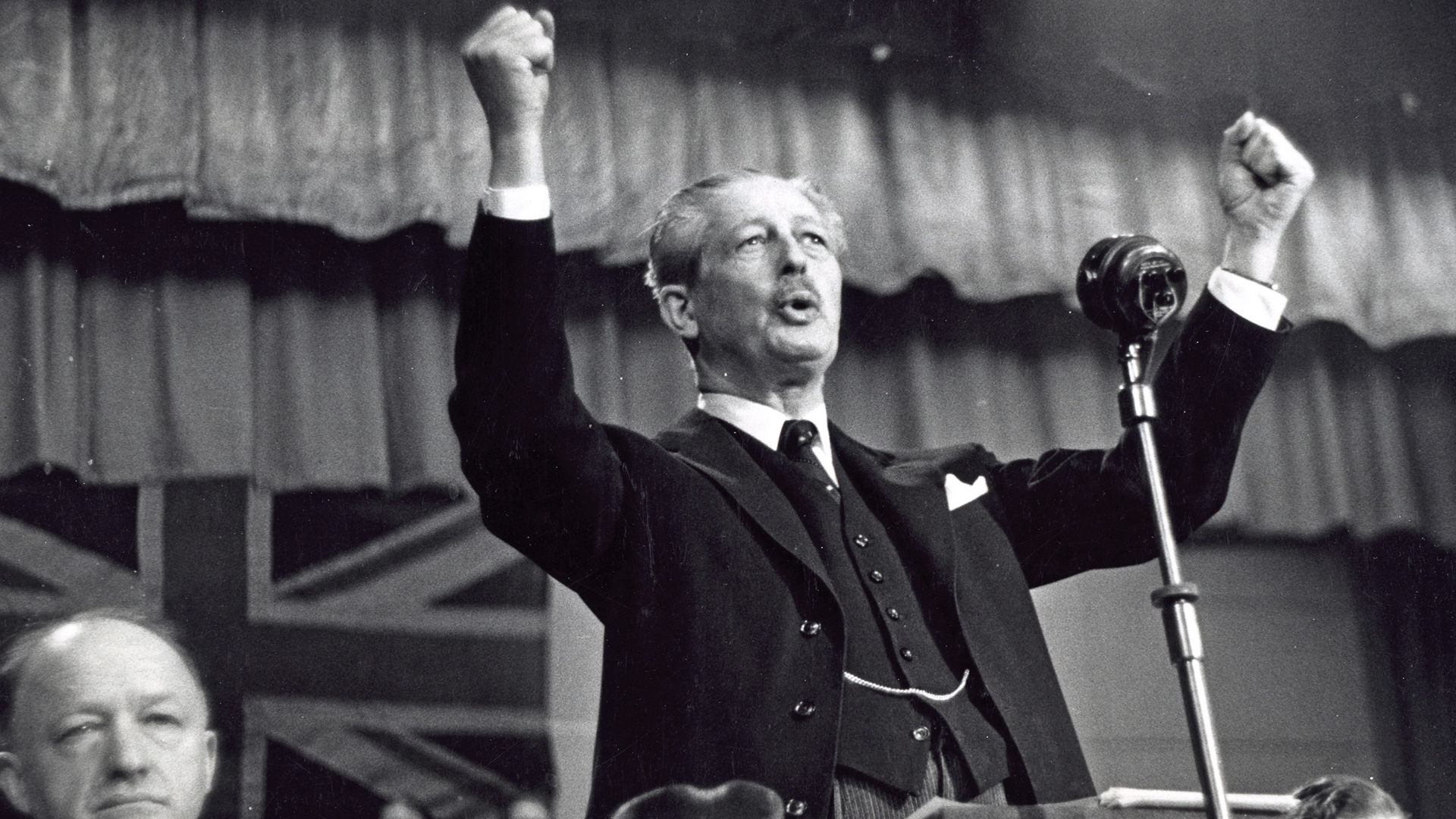When Sir Winston Churchill’s administration came in in late 1951 it seemed that the tight state corset of rationing and austerity was lifted off the lives of the people. The Labour government had since 1945 led the people into a welfare state, with an apparent promise that one day they could share in the prosperity only hitherto enjoyed by the professional middle classes and their social betters. Rationing of many things, though – sweets being the hardest thing for a postwar child like me – seemed to suggest to some that we might be living more in a Soviet system than a slowly reviving mixed economy of socially responsible capitalism.
Whatever the truth of the promises, certainly between 1952 and 1962 the Tories were seen as the arbiters in creating more material prosperity for people. Within four years the greatest sign of comfort and joy was the arrival of commercial TV in the London area, and its spread to other parts of the UK over the next few years. The comfort of coming home from what was classed as an unskilled or semi-skilled job, tiring and labour intensive, to a box that radiated promises, hopes and stories was a godsend. It made us all feel more happy and prosperous, even if there was not a lot of prosperity around.
Change a Big Issue vendor’s life this Christmas by purchasing a Winter Support Kit. You’ll receive four copies of the magazine and create a brighter future for our vendors through Christmas and beyond.
Youth culture seemed to coincide with this, with Elvis, Craig Douglas and Tommy Steele – a kind of English Elvis – and new clothes to demonstrate that you were young and ready to rock’n’roll all night. Hairstyles, denim jeans, brash colours, pointed shoes – winklepickers – all collided in this post war whirl through consumerism. And it looked – looked – as if the Tories were sharing out the largesse of their incredible fortunes and comforts.
Labour were dead in the water because they were the party that wanted to close down the party of gay abandonment that many wanted; cod liver oil capsules and the state-supplied milk were just not enough to whet the appetites of the common people.
A ‘confectionery’ culture you might call it, with a vast increase in sugar, to ‘sugar’ this new expansion of pleasure into a part of society that had previously had very little.









